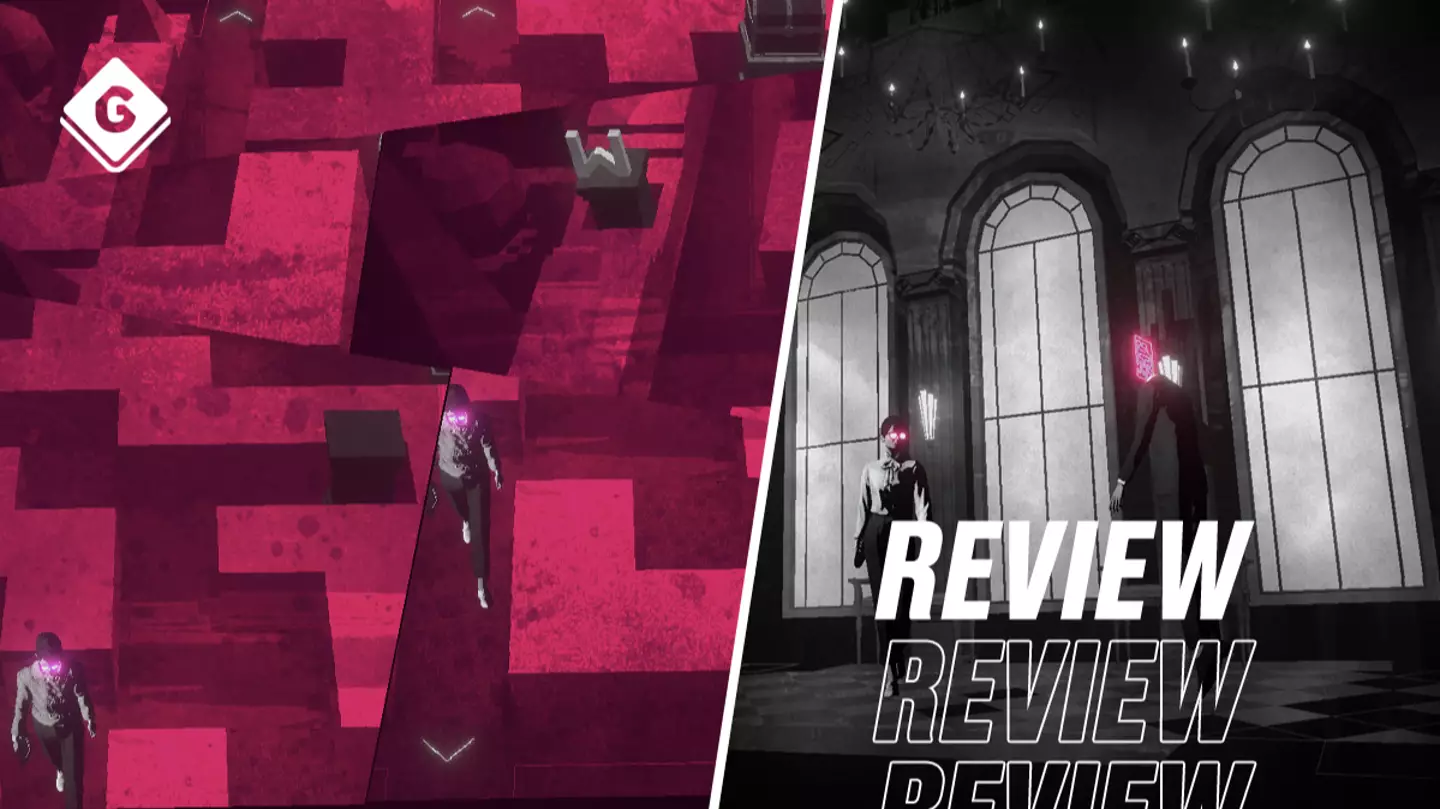
Within two hours of playing Lorelai and the Laser Eyes, I’d already filled out several pages of a notebook with clues and hints. My scrawlings featured Roman numerals, dodgy sketches of symbols found throughout the hotel, various random phone numbers, and soon my in-game handbag was filling up with keys, a crank, some lettered children’s blocks, and pages for a vague script.
If there’s anything to be gleaned from those notes, only I will understand them. They wouldn’t make sense to anyone else, you have to be exactly where I am standing in this fictional hotel, at this precise moment of the story.
I came to this European hotel to put together a mystery (that seemingly doubles as an art project) that would be spoiled were I to give over too much information. In an ideal world, my review would simply say, ‘Play it, trust me’, but I owe you many more words than that so I’ll try to sell you on a game so wholly obscure, but one that is likely to top my Game of the Year list as 2024 draws to a close.
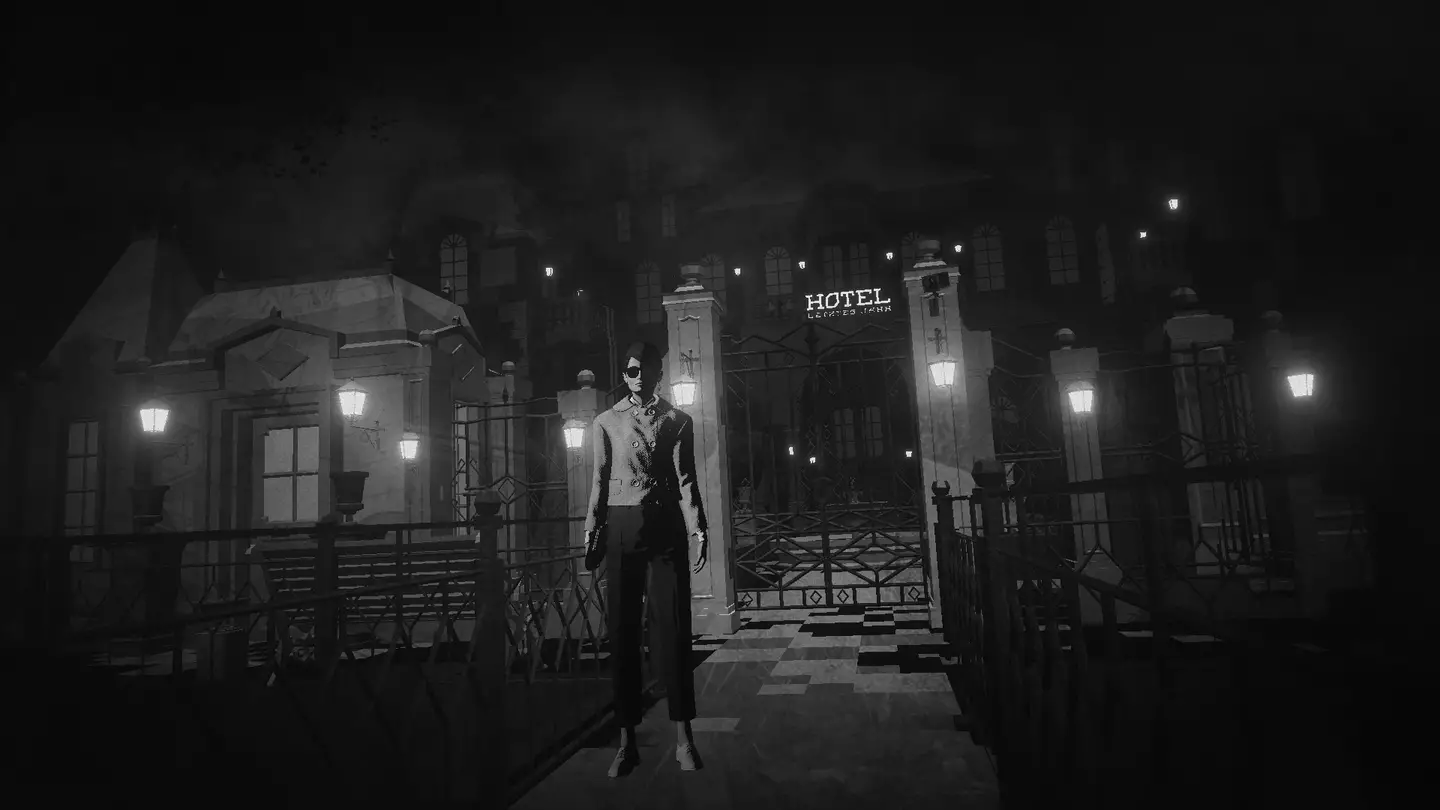
Advert
Lorelai and the Laser Eyes is the latest game by Simogo, a developer renowned for creating games that verge on art; prestigious because they’re not shy to be obscure. They’re a company known for letting go of the player’s hand and watching us muddle our way through. In this game, we play a woman who is possibly a detective of some sort, in a black, white, and grey stylised world occasionally heightened by splashes of crimson and devious dreamlike imagery.
We’ve been sent a letter to attend a hotel where something is happening, or has happened, or might happen and the only way to solve this mystery is to deal with a myriad of puzzles scattered about the building. Some you may have seen elsewhere, like finding a crank that must be seated in a socket somewhere, or discovering statues that require a circular object to be fitted before they activate a certain system.
Other puzzles are much more vague, like a collection of boxes that must be opened, or a bunch of safes that need combinations only vaguely hinted at through letters, notes, and conversations.
Thankfully, our heroine has a photographic memory so anything you see, hear, or experience is made note of and stored away for future use. That doesn’t mean you won’t be writing down everything like a bizarre combination of Jessica Fletcher and Columbo. Everything in this hotel is a clue. Everything said has a double or triple meaning.
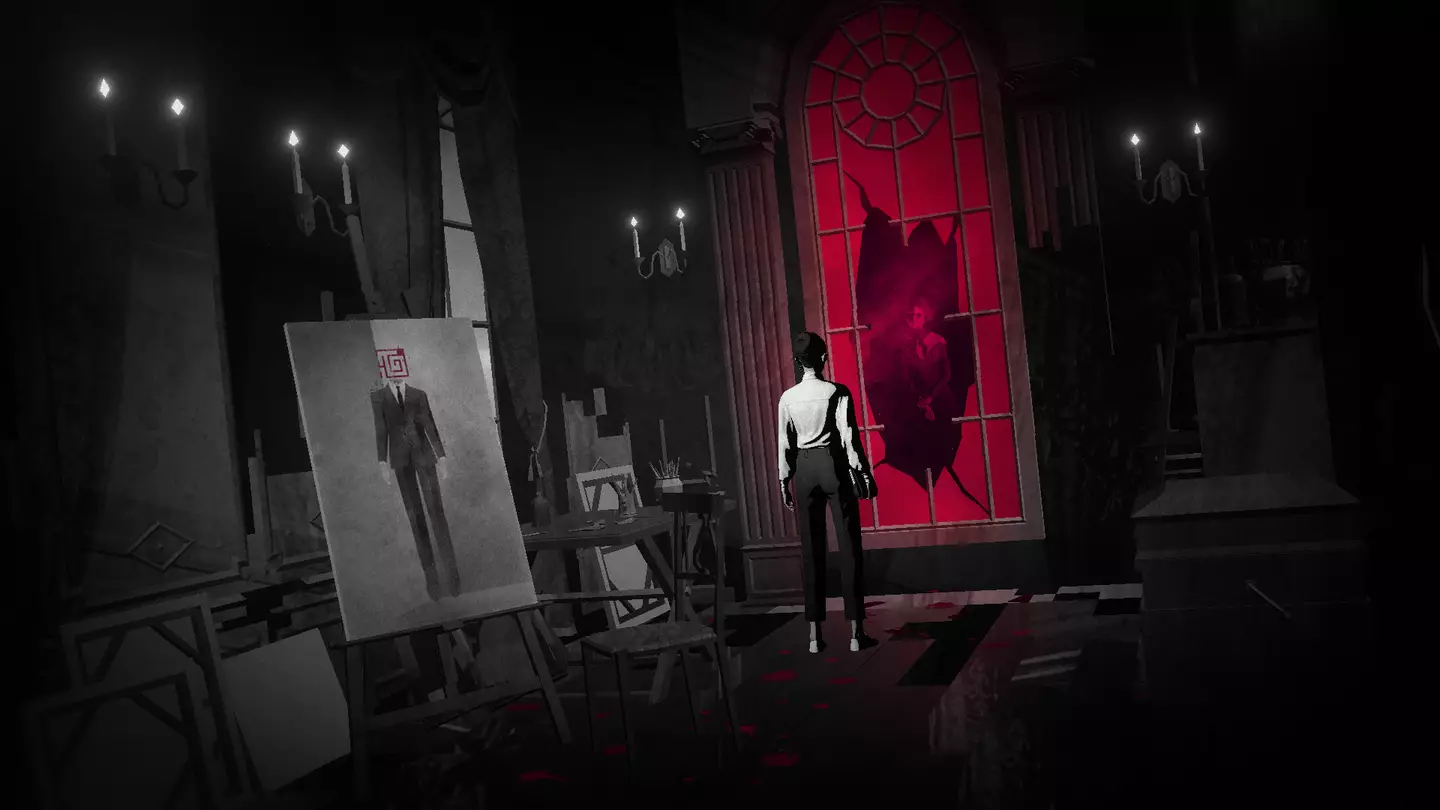
However, with each puzzle solved, a little more of the overall picture can be seen. More of the tale is laid out. Should I say anymore though and I would be robbing the game of what makes it so special, because special is what this is. The closest comparison I can give is The Witness, but that was more a trial of puzzle book headscratchers. Lorelai and the Laser Eyes offers a sprawling world with complex characters, and mundane yet important items, that turn everything into a question.
Here’s a selection of questions I asked myself while playing; “How do I open that hotel room?”, “Which phases of the moon are important to this character to open a journal?”, “How do I piece together this broken key?”, “What’s 210 degrees on an analogue clock?” You have to think laterally, abstractly, and so far outside the box, that the box is just a pixel.
The hotel is reminiscent of the Spencer Mansion in Resident Evil, it’s a character that must be explored, interrogated, and thoroughly searched. It constantly unfolds into a mosaic of rooms and corridors, each holding more puzzles, more possibilities. We know very little of our heroine, but she is, at first, just a shape for us to inhabit, a piece to move around on a 5D Chess board. She collects items, deals with scary small children, and comes face to face with genius and lunacy, but soon you come to care for her, as blank as she may be.
There are many things Simogo does very well here but perhaps the finest is how they’ve created a game that feels delightfully meta without making it all feel forced. Being able to telephone people in-game feels like dialling a friend; there’s a handheld video game system in your bag that plays games based on Simogo’s classics, including one of my favourite puzzle games of all-time, Ilo Milo. The car you first arrive in has the game’s manual inside the glove compartment, and even the aforementioned crank can be examined where you’ll read a note about how it became a video game trope.
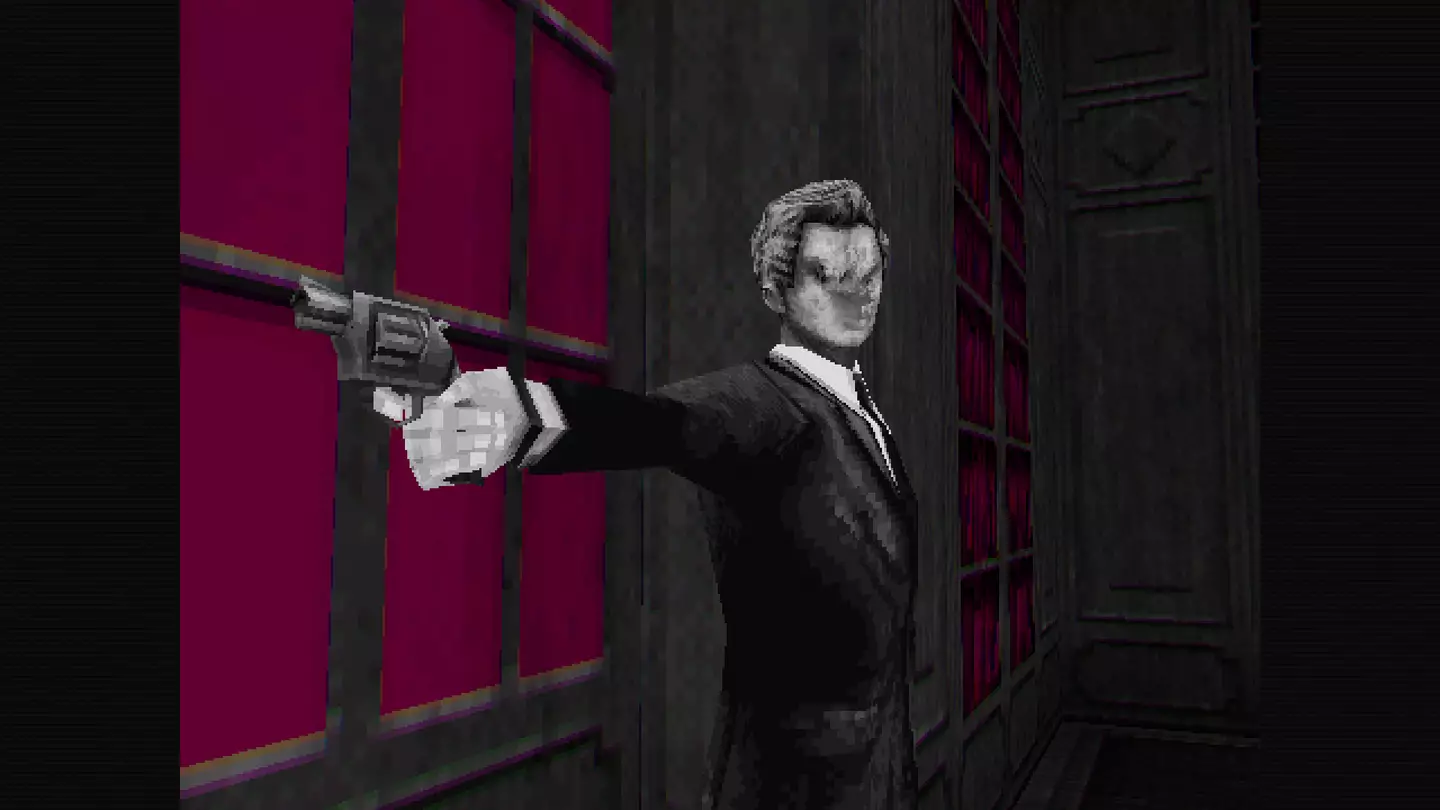
You’re being led into thinking the game is bigger than it should be. There’s a sense of scale that feels difficult to wrap your mind around, and because the hotel seems endless - this includes the stereotypical hedge maze (but with a twist) - you feel like there is always something to uncover, which is the task of any good detective.
Even once I put my Nintendo Switch down, the mystery never left me. I’d be washing the dishes or making dinner and thinking about how playing a piano might give me an answer, or how an abstract image of lines could give me the sign-in details for a computer. Like any brilliant game, it’s never far from your mind; like the film Momento stuck with me, Lorelai will still be here in months to come.
I was going to use the word ‘masterpiece’ just then, a word that gets thrown around a lot, but one that is fitting here. You can skip ahead to the score if you like but it’s worth me saying now that this was one of the easiest 10 out of 10s I’ve given in my 14-year career.
I’m aware this game will not be for everyone. It has shades of survival horror, it feels like a book of cryptic crosswords, and it’s more art house than Hollywood, but that’s fine. It’ll find its audience and it will be played for years to come. It has the staying power that a masterpiece of media always has - it will endure and it will become loved by many.
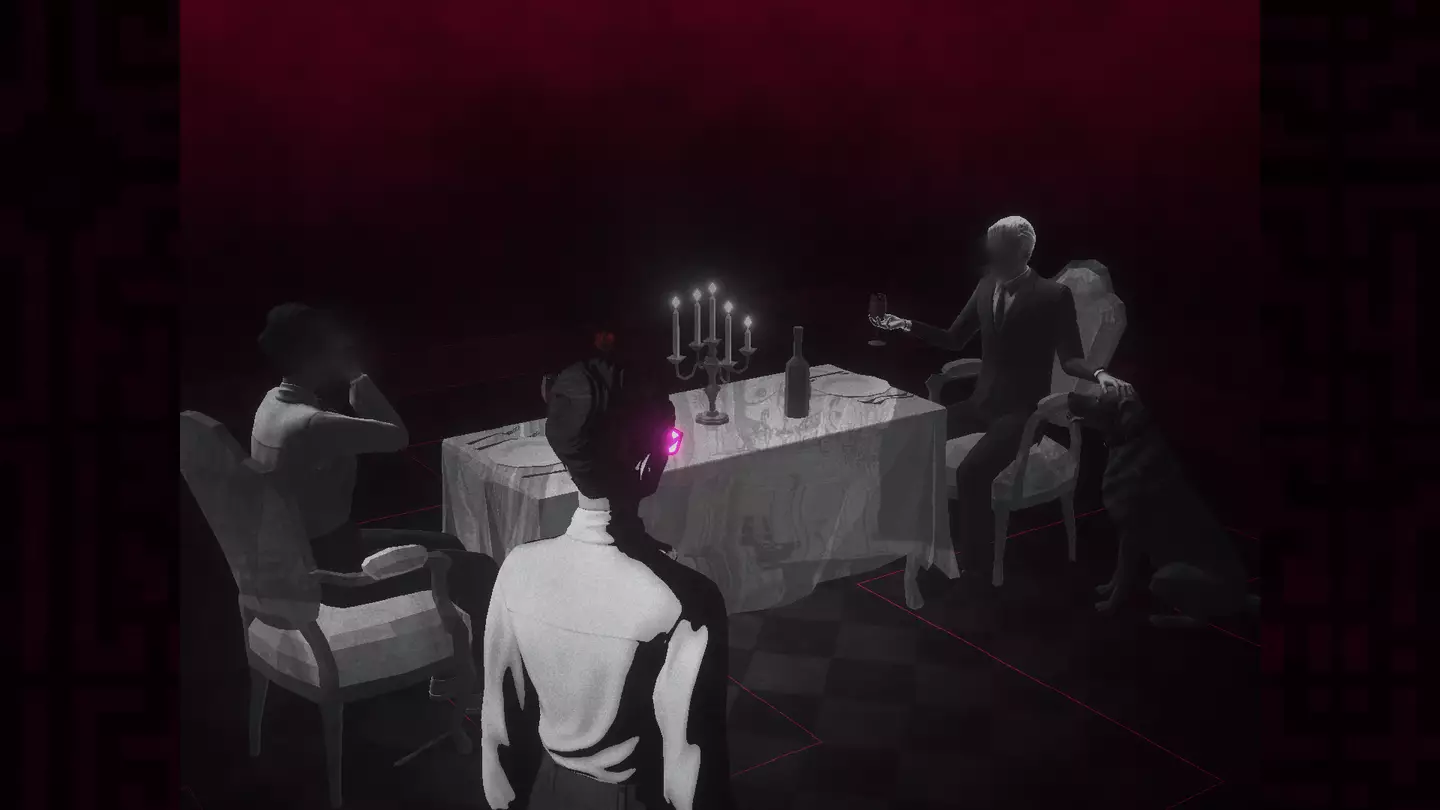
I want to close out this review by talking about my favourite TV show (and a film) that I’m sure had a huge impact on the inspirations for Lorelai and the Laser Eyes. Twin Peaks is often hailed as one of the finest pieces of television, even with the wonky second season. It caused confusion, intrigue, mystery, and it did so within an abstract world that often raised more questions than answers. We followed Dale Cooper around the town of Twin Peaks watching him discover clue after clue as he tried his best to solve the murder of Laura Palmer despite the kooky world in which it occurred.
As David Lynch expanded Twin Peaks it became something bigger than itself; something wholly meta, to the point where it transcended TV and film. Lorelai borrows so much from Twin Peaks and manages to elevate it further than Lynch could possibly imagine by making the teasing mystery an interactive experience and using that interactivity to push and pull the player into a world of confusion that ultimately becomes one of supreme satisfaction.
Pros: Stylish visuals from every angle, intriguing puzzles, engaging meta world, and an unforgettable experience.
Cons: Should be on more platforms
For fans of: The Witness, Professor Layton, Twin Peaks, Memento
10/10: Perfect
Lorelai and the Laser Eyes is available now on Nintendo Switch (version tested) and Steam. Review code was provided by the publisher. Find a complete guide to GAMINGbible's review scores here.
Topics: Nintendo Switch, PC, Reviews, Steam
